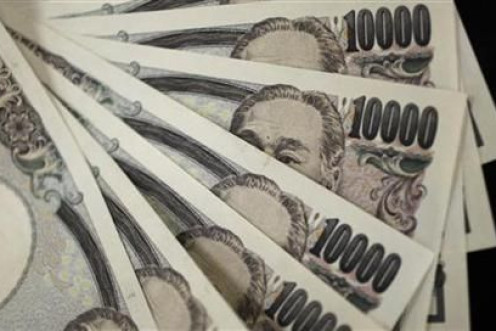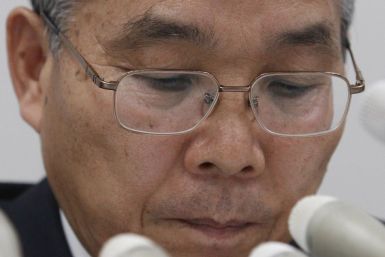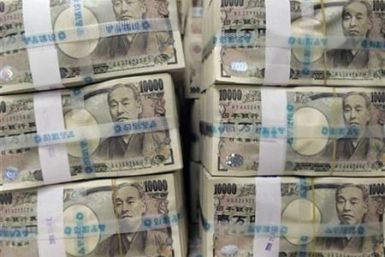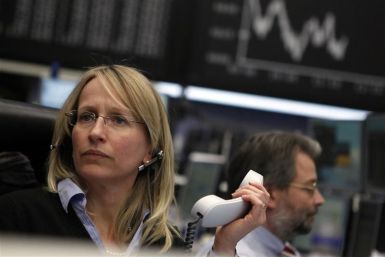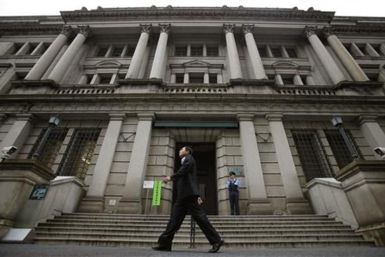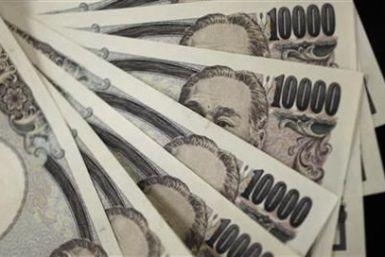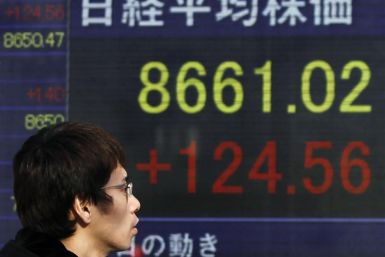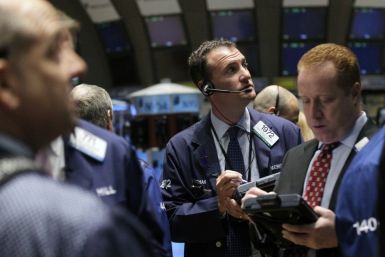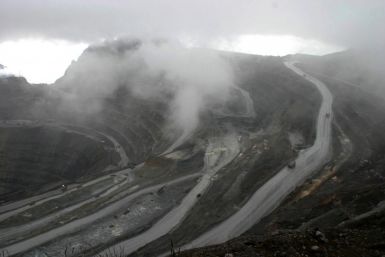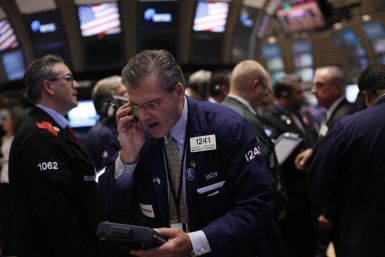Retail sales in Japan rose above forecasts indicating a recovery in consumer spending which could help the country to attain economic growth this quarter.
Elpida Memory filed on Monday for bankruptcy protection, the largest ever by a Japanese manufacturer.
Bank of Japan Gov. Masaaki Shirakawa said on Saturday policy makers are closely watching the impact of looser monetary policy on crude-oil prices. Along with the European Central Bank and the U.S. Federal Reserve, the Bank of Japan is taking unconventional steps to boost the economy.
Japan's Nikkei share average extended its rally and rose to a 6-1/2-month high on Friday above 9,600, heading for its best February performance in two decades.
Standard & Poor's Ratings Services said that it has affirmed Japan's sovereign debt rating at AA- along with maintaining its negative outlook as the country faces dismal fiscal position.
The market capitalization of U.S. equity markets has increased by $3 trillion since last October.
The Bank of Japan said Tuesday it increased its asset buying program by $130 billion and set an inflation target of one percent to stimulate economic growth and combat deflation.
The yen fell on Tuesday as the Bank ofJapan eased monetary policy by expanding its asset-buying scheme, but the impact on the currency may prove short-lived while nagging worries over the euro zone crisis keep it supported as a safe haven.
The Bank of Japan boosted its asset buying program by $130 billion on Tuesday and in the face of political pressure set an inflation goal of one percent, signaling a more aggressive monetary policy to pull an ailing economy out of deflation.
Japan's Nikkei share average slipped on Tuesday but still hovered near the 9,000 level, with non-life insurers underperforming after MS&AD Insurance Group Holdings (8725.T) cut guidance on heavy losses on the flooding in Thailand.
Japan's economy shrank a bigger-than-expected 0.6 percent in October-December, hurt by slowing global growth, Thai floods and a strong yen, casting doubt about expectations that growth will resume this quarter as Europe's debt crisis clouds the outlook.
Japan's core consumer prices fell for the third consecutive month in the year to December, and mild deflation is expected to persist this year as energy prices stabilize and worries about Europe's debt crisis suppress wage growth and economic activity.
Japan logged a trade deficit of 2.49 trillion yen ($32 billion) for 2011, Ministry of Finance data showed on Wednesday, the first annual deficit since 1980.
Japan's Nikkei average edged higher on Tuesday and recovered its footing after better-than-expected Chinese economic data and solid demand at a French treasury bill auction reassured investors in the wake of European debt downgrades.
Asian stocks and the euro rose on Wednesday after upbeat U.S. and German data and strong demand for Spanish debt tempered risk-aversion, with investors' focus turning to a European Central Bank tender as a gauge for euro zone funding strains.
You can't blame investors for feeling a bit hesitant regarding deploying new money in the U.S. stock market these days. Lingering concern about Italy's finances, along with below-trend U.S. GDP growth has created an uncertain U.S./Europe economic outlook. Where's the Dow likely to head in the next six months?
Central bank action on Wednesday to ease severe funding strains for the world's private sector banks may help cushion a brewing global credit crunch but it only buys some wiggle room for governments trying to resolve the euro debt crisis and keep banks lending.
President Barack Obama on Wednesday said he was deeply concerned about the euro zone crisis and market turmoil would continue until Europe has a concrete plan to deal with its sovereign debt woes.
Japan's economy rebounded from an earthquake-triggered recession in the third quarter by expanding 1.5 percent, a pace that is likely to slow down though as a strong yen and weak global growth darken the outlook.
Gold has confounded market watchers by refusing to behave like a safe-haven and instead has tracked equities over the past few weeks, but the escalating European debt crisis could see bullion ditch its risk-asset mantle and return to record highs.
The Dow Jones Industrial Average (DJIA) registered another difficult day Tuesday, plunging 389 points to 11,781 on institutional investor concern that Italy will not be able to service its debt, and that one, and possibly more countries may leave the Eurozone. What's the prudent stance for the typical investor?
The Bank of Japan supplied dollars in market operations on Wednesday for the first time in more than a year, a sign of the global market strains that board member Sayuri Shirai separately said could push the yen higher again.




